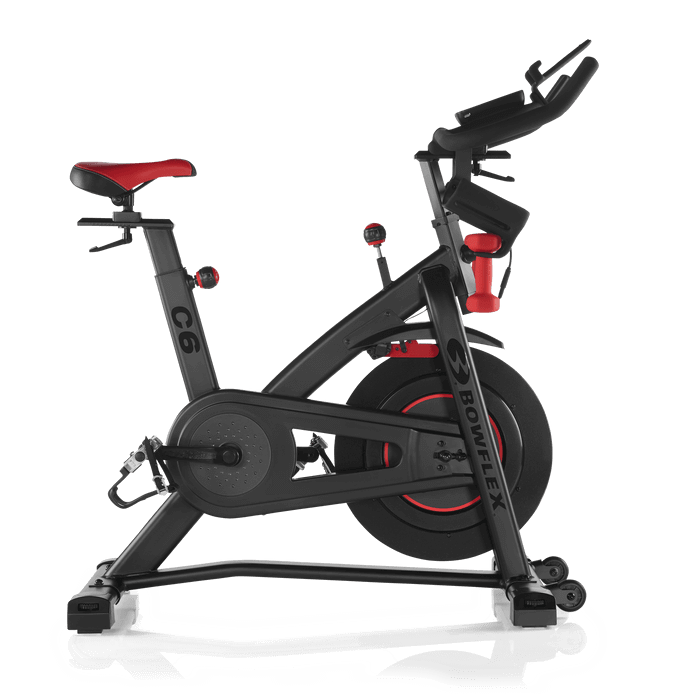The technology for indoor cycling bike design continues to expand. One of the greatest introductions into this market is the development of a magnetic resistance system. As an indoor cycling instructor, I have learned various models exceptionally well throughout my career based on the equipment that my facility (The Ridge Athletic – Montana) has decided to use; Besides, I have tested and reviewed many magnetic spin bikes as a tester for IndoorCyclingLove.com blog (most of these reviews are also accessible through our YouTube Channel).
In this article I will share 6 excellent magnetic indoor cycles that I tested and loved!
My Top Magnetic Indoor Cycles
Best Value: Bowflex C6
An excellent alternative option to Peloton or other streaming bikes. A quiet magnetic resistance bike, proficient enough to link with the many available streaming devices such as Peloton® and Zwift®.
The Bowflex C6 has been an excellent addition to my workouts. While I usually prefer bikes with friction resistance for their natural feel, the magnetic resistance on the C6 has grown on me, providing smooth, quiet rides. I frequently use it with the Peloton® digital app, and I love how seamlessly it performs across different cycling apps. Its quiet operation allows me to work out anytime without disturbing my household—a big plus!
The bike’s affordability (usually under $900) makes it a standout option for those seeking high-end features without breaking the bank. Its adjustability is perfect for shorter riders like me, with handlebars that move closer to the saddle for comfort. I also appreciate the SPD-compatible pedals, which let me use my studio cleats at home. The tablet rest adds versatility, allowing me to enjoy my favorite apps easily. Overall, the C6 delivers great value and reliability for indoor cycling.
Images from My Hands-on Testing
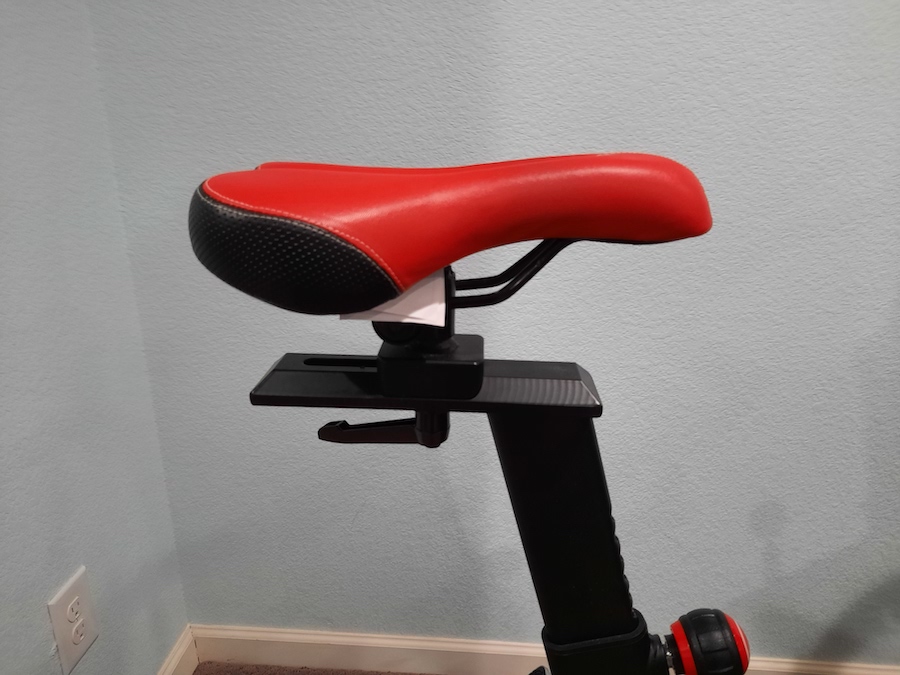
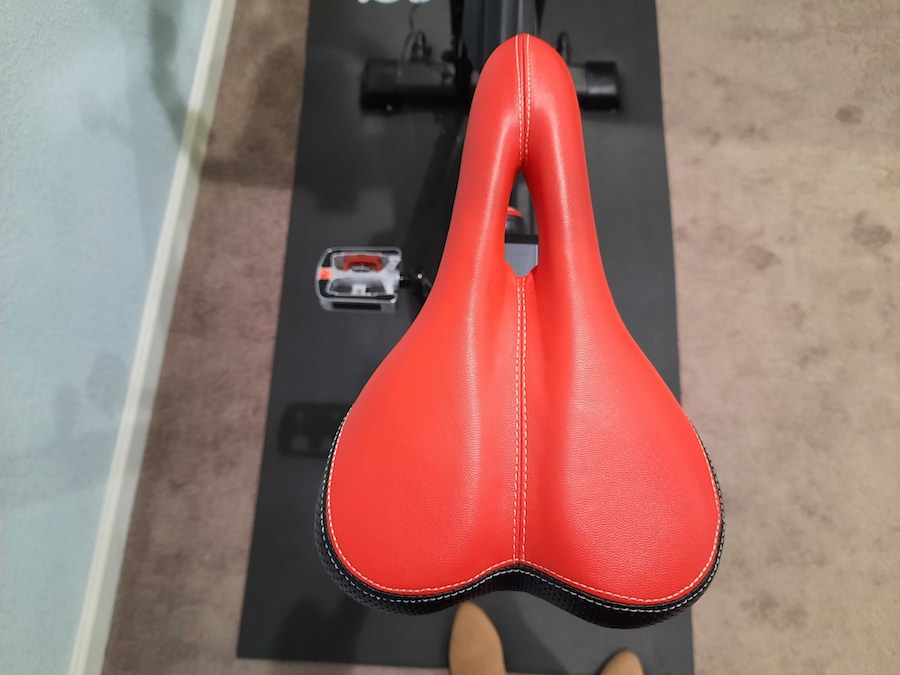
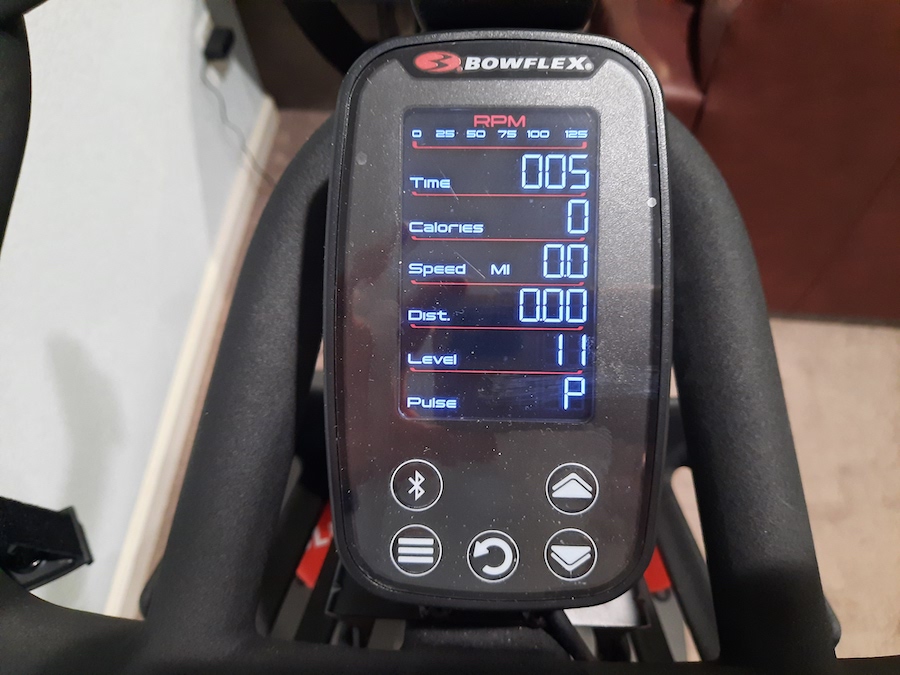
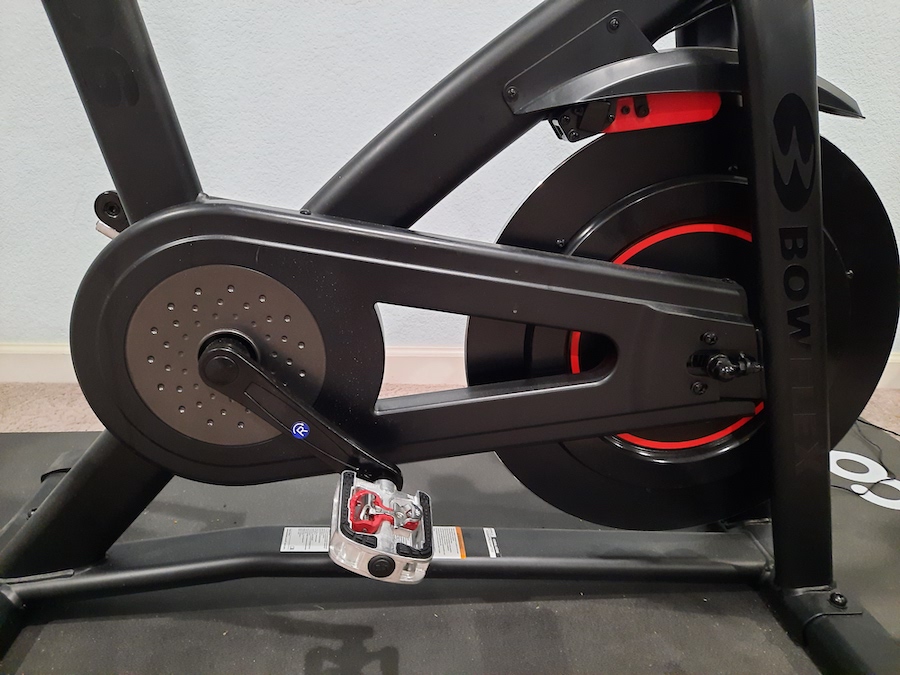
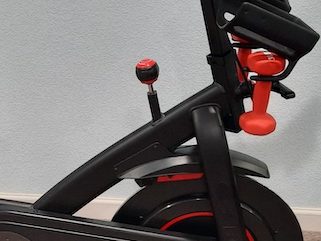
My Best Option for an Online Class experience: Peloton Bike
Maybe the most popular indoor cycle, and for a good reason. Excellent quality with an excellent app for beginners and experts. The only downside it that users cannot change resistance when using apps like Zwift etc.
The Peloton bike impressed me with its seamless integration into the Peloton platform, offering instant access to classes, metrics, and the leaderboard. The bike’s smooth magnetic resistance and quiet performance made my rides enjoyable, and the 100 resistance levels challenged me during tougher sessions. I also appreciated the thoughtful design for shorter riders like myself. Unlike other bikes, the handlebars adjust vertically, making it easier to find a comfortable position. The frame feels durable, and the powder-coated finish effectively resists sweat and rust.
What sets Peloton apart is the unmatched quality of its app content and instructors. Olivia Amato and Kendall Tool consistently push me to perform at my best. While the price is higher, the combination of performance, content, and features makes it worthwhile.
Images from the Hands-on Testing
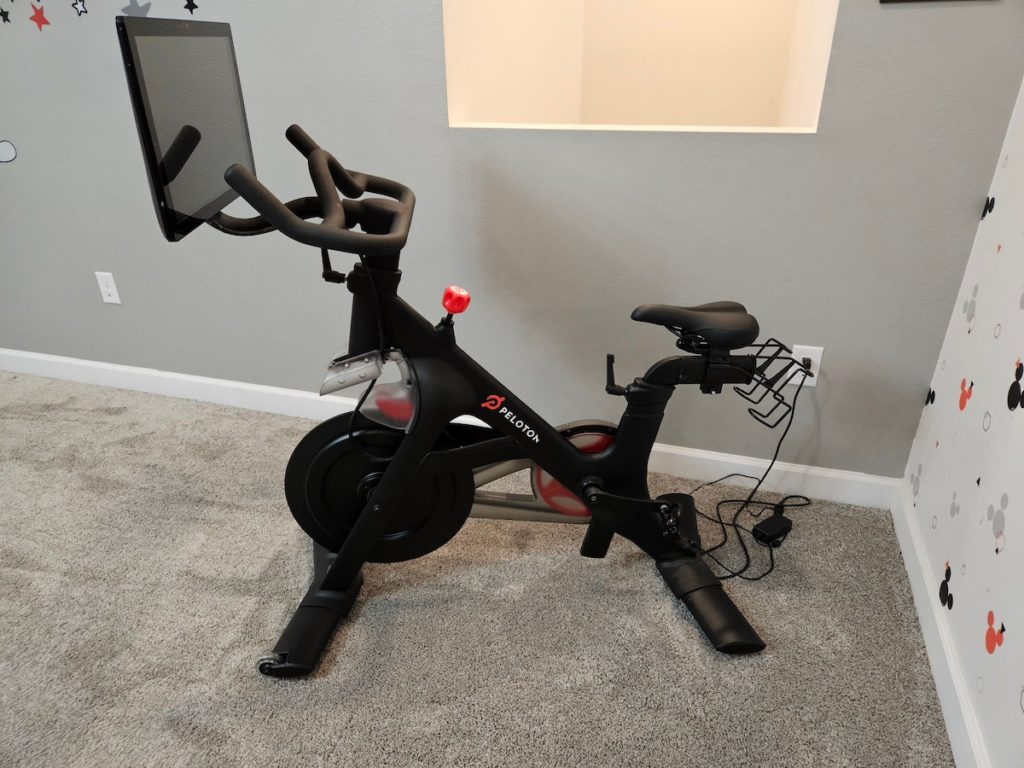
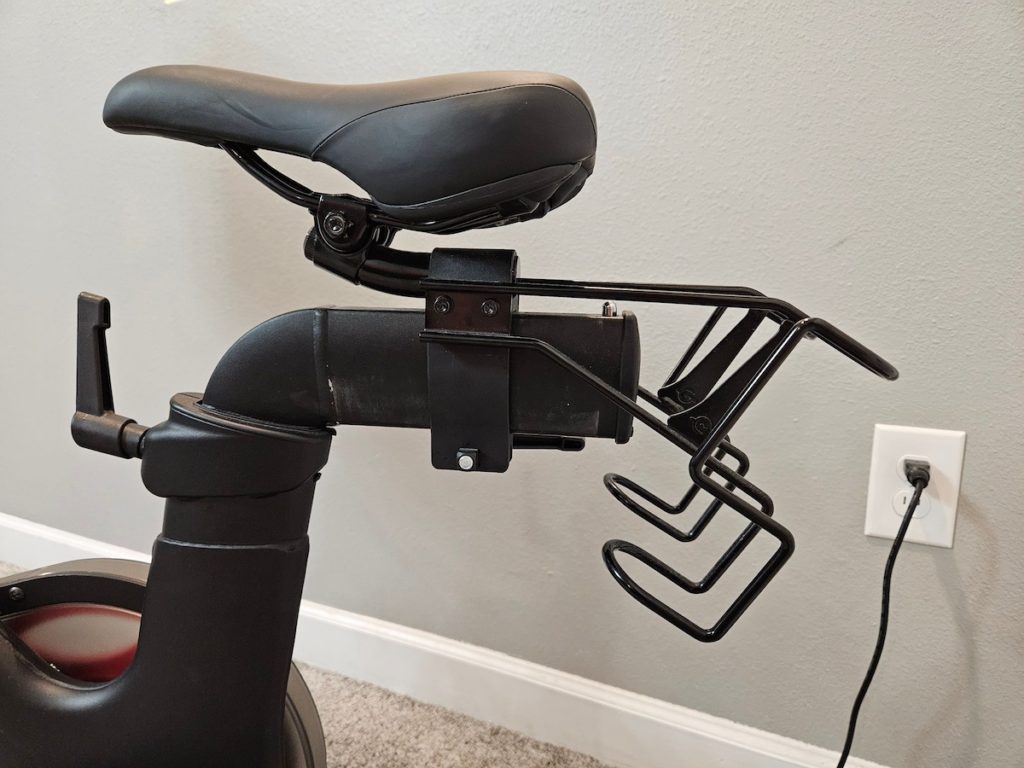
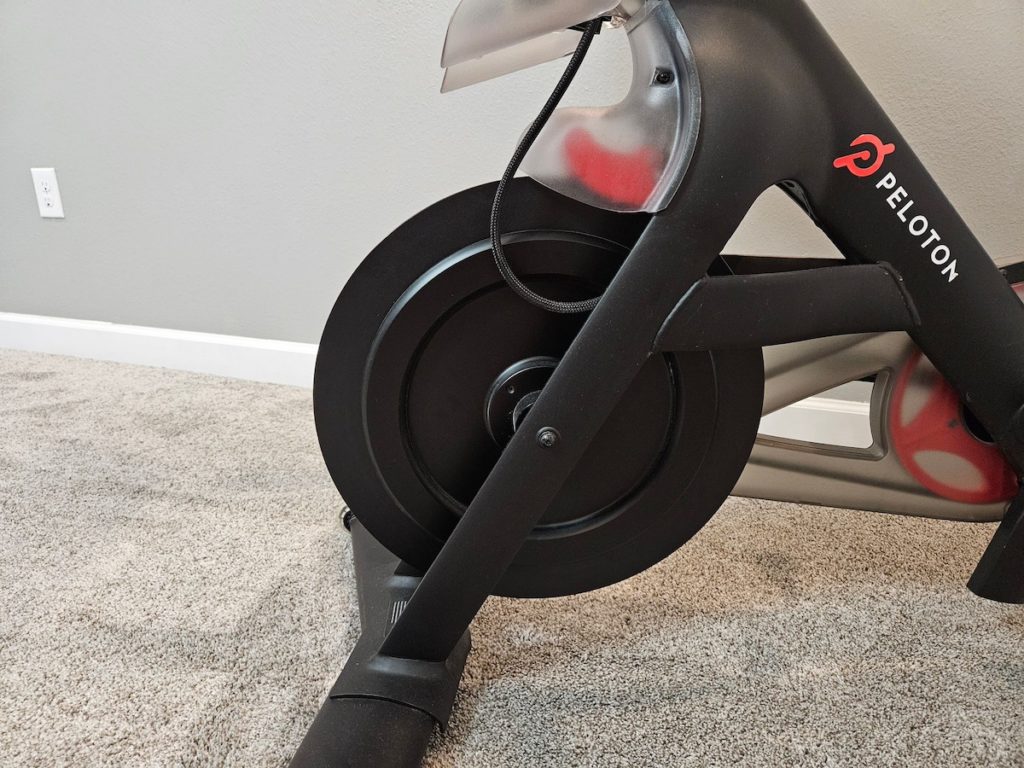
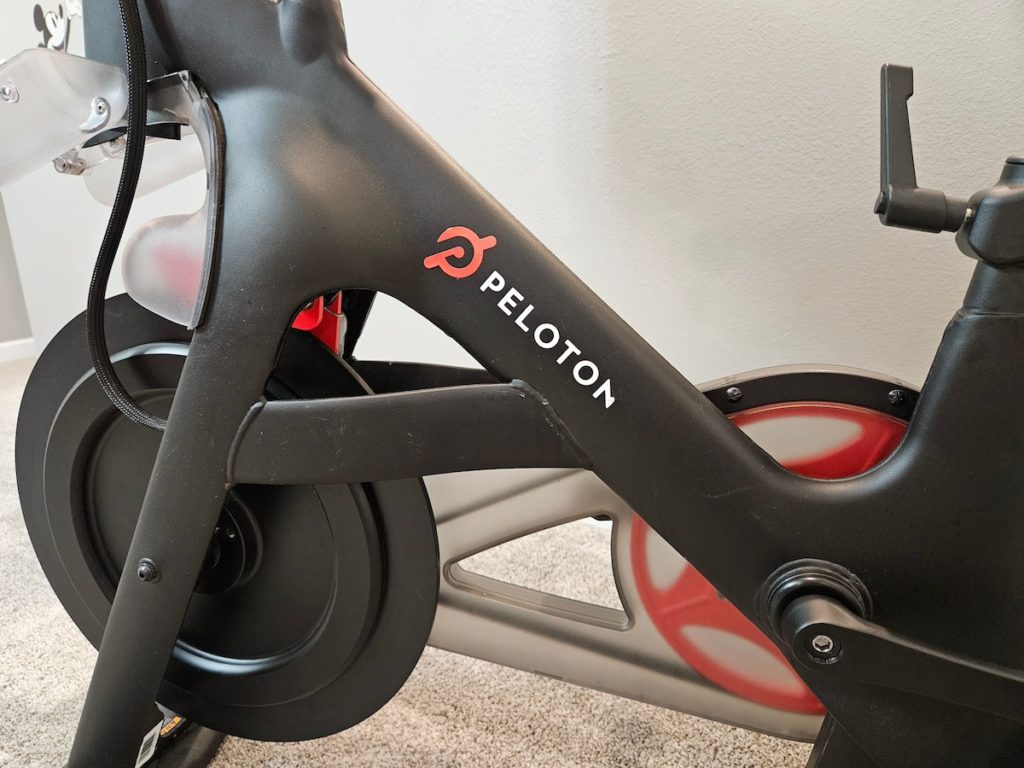
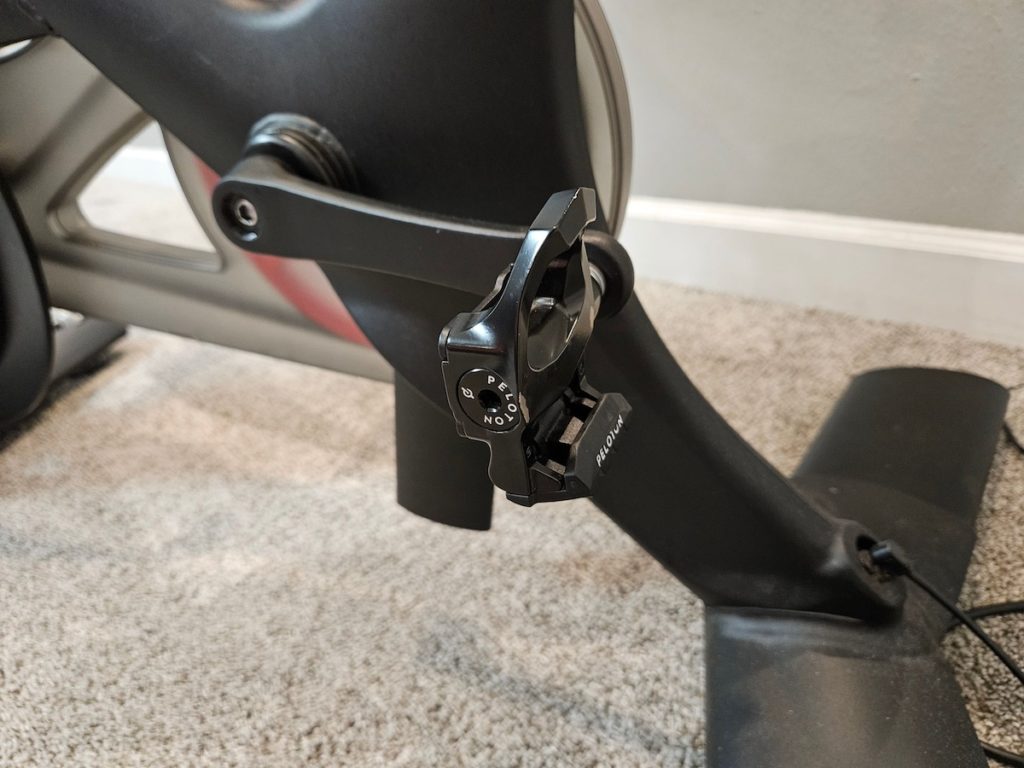
My Top Commercial Grade: Keiser M3i
A top-tier, rear-flywheel indoor bike known for its quiet, smooth, and adjustable ride. Its self-powered design doesn’t need electricity, adding convenience. The M3i’s robust build and reliable performance make it a favorite among serious cyclists and fitness enthusiasts.
The Keiser M3i has been a solid performer during my classes, offering a smooth, whisper-quiet ride that accommodates a wide range of riders. Its V-shaped frame supports users up to 7 feet tall and 350 pounds, and the four-way adjustability ensures comfort for various body types. I appreciated the bike’s seamless pedal stroke and challenging resistance, even with only 24 gear levels. The hybrid pedals were a bonus, allowing me to use either SPD cleats or regular sneakers.
What stood out most was its durability. Despite minor issues like seat loosening or occasional jams with older models, the overall construction quality is excellent. I also loved the bike’s versatility, with no electricity required and connectivity options for apps like Zwift and Peloton. While it’s pricier than some models, the M3i offers premium features and reliability, making it a great choice for taller riders or those seeking a quiet, durable bike.
Images from My Hands-on Testing
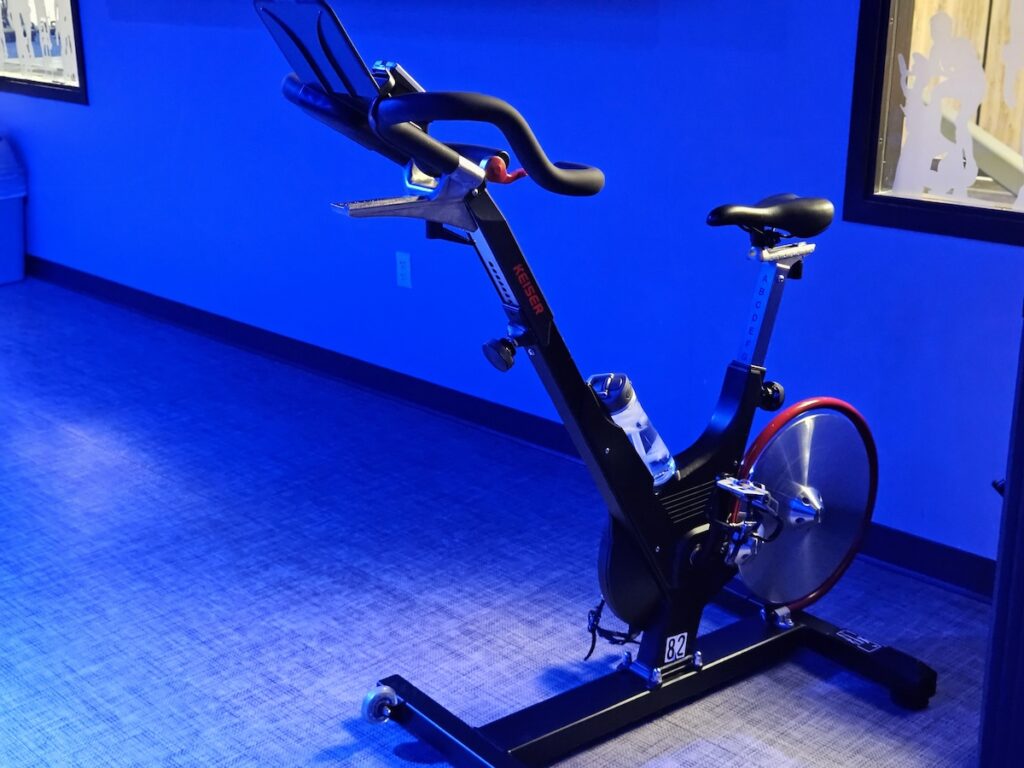
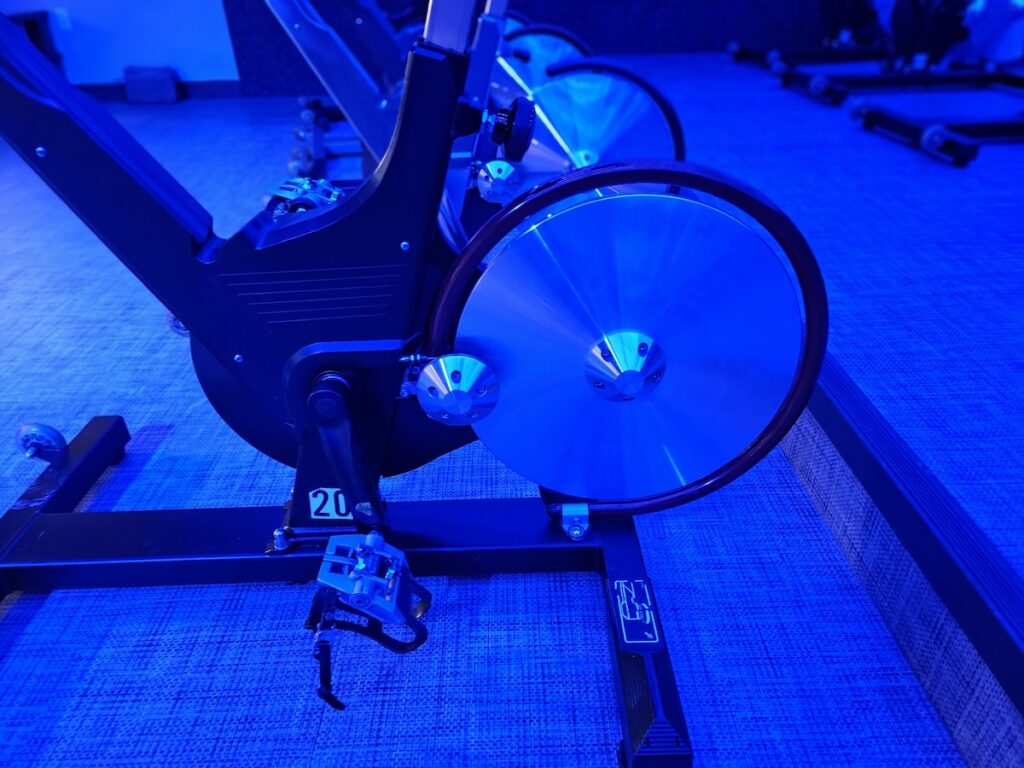
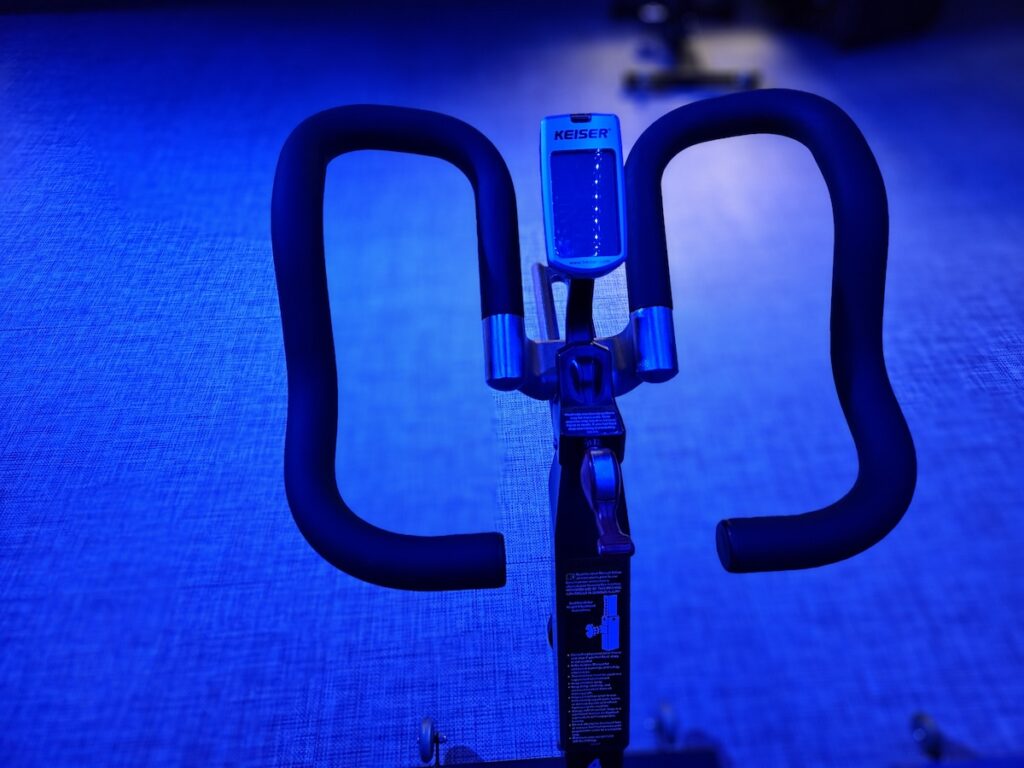
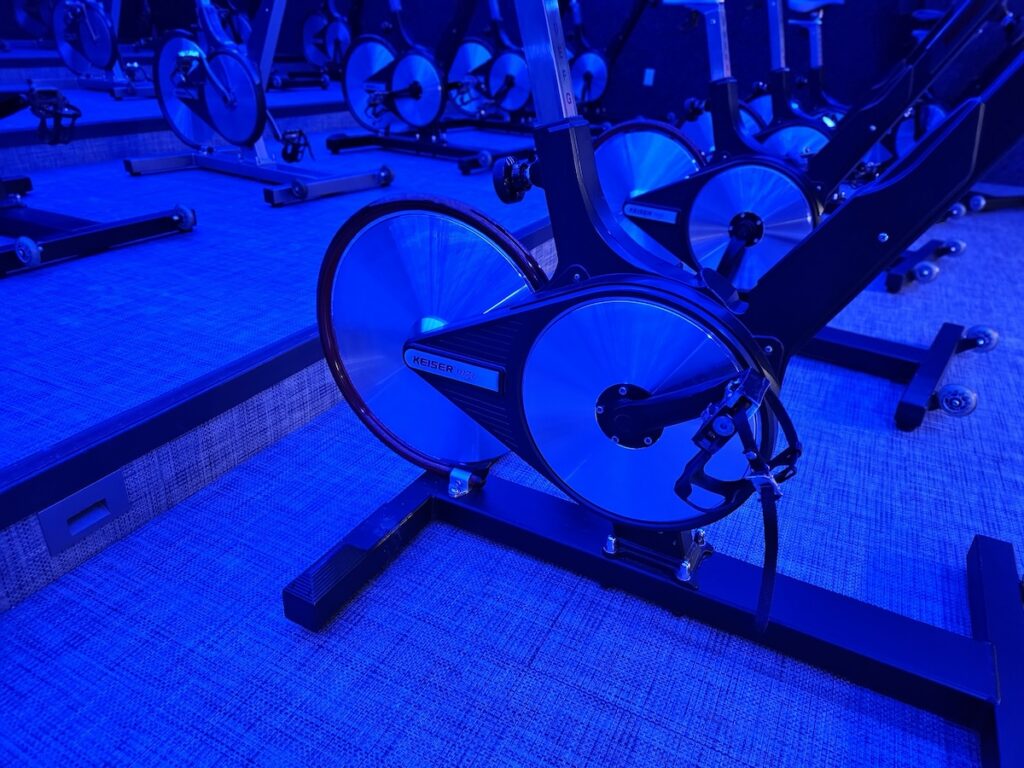
My Top for Interactive Experience: Freebeat Lit Bike
Offers a smooth riding experience with excellent resistance and adjustable features for different heights. It has a music-based app with gaming elements, and the construction is sturdy and durable. Comes with a 22" HD Touchscreen, Auto Resistance System, and more.
Exclusive Coupon for GirlBikeLove Users: Apply the Code GBL100 for -$100 OFF. It can be combined with other discounts!
The Freebeat Lit Bike is great for those seeking a smooth riding experience. I tested it for around 1 month (read my detailed freebeat lit bike review), and I feel confident to say that it has excellent resistance, whether you want to use manual or auto, and is relatively quiet. The same goes for the quality of the bike; the construction is sturdy and durable, although the pedals and water bottle holders could be more robust.
Images from My Hands-on Testing





The saddle and handlebar are adjustable to fit whether you are short or tall, and the bike has a music-based app that provides a unique riding experience with “gaming-like” elements. The assembly process is relatively straightforward, and the bike is well-packed – probably the best package I’ve seen with Styrofoam for every component. Overall, it’s an excellent bike for those seeking a high-energy, music-based workout.
An excellent budget choice: Sunny SF-B1709
Not only does it look great, but it offers such a lovely ride, and the experience it gives is very personal and does feel like a spin bike, not a cheap exercise bike.
The review of this bike was conducted by Robbie Ferri, a cycling instructor from our team who have produced dozens of videos in our channel with his Sunny SF-B1709 for a spin; here’s his take (you can also read his detailed review of the SF-B1709 – includes also his video review):
- Riding Experience & Performance 5/5: The Sunny SF-B1709 offers a fantastic riding experience with silky-smooth performance and a nifty resistance lever. It handles power like a champ and has versatile handlebar positions.
- Construction Quality & Durability 5/5: Despite initial price concerns, the SF-B1709 proves to be a solid, well-built bike with no flimsiness or rattling. It’s engineered just right.
- Assembly Process 4/5: Assembly may look daunting, but it’s surprisingly straightforward, taking around 30 minutes with clear instructions and included tools.
- Comfort & Adjustability 4/5: While adjustable, the saddle left some comfort to be desired, recognizing that saddle preferences vary.
- Connectivity 2/5: Limited connectivity, but you can still use popular fitness apps with workarounds. Consider power meter pedals for advanced options.
- Support, Financing Options & Warranty 4/5: Good customer service, finance options, and a decent three-year structural warranty with 180 days on parts and components.
- Value For Money 5/5: At just $400 with free shipping, the Sunny SF-B1709 is an incredible bargain that’s hard to believe. It’s a steal!
Images from the Hands-on Testing
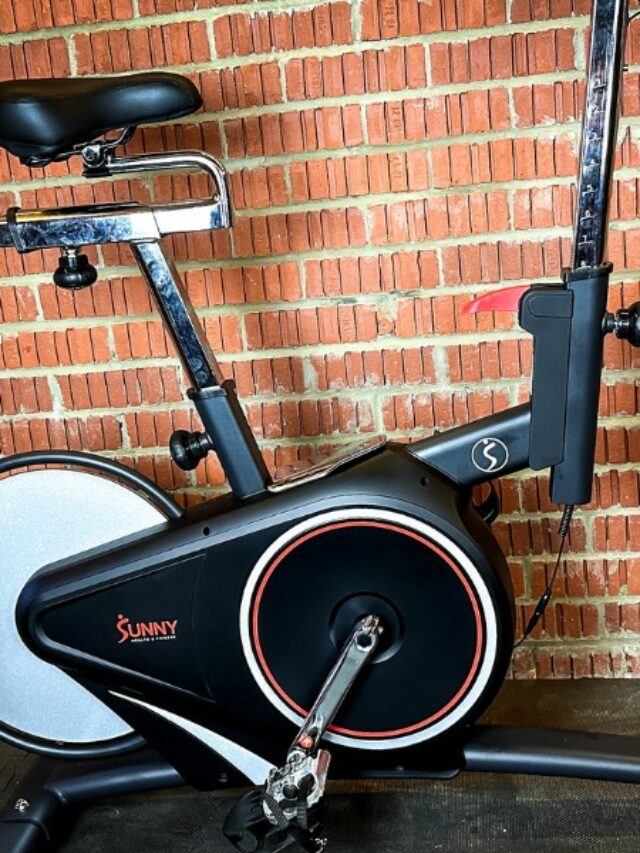
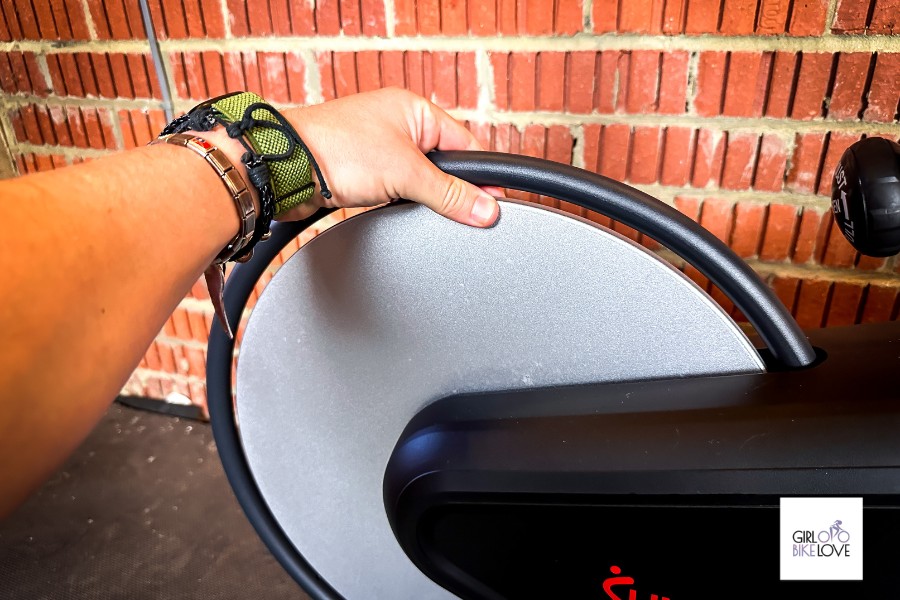
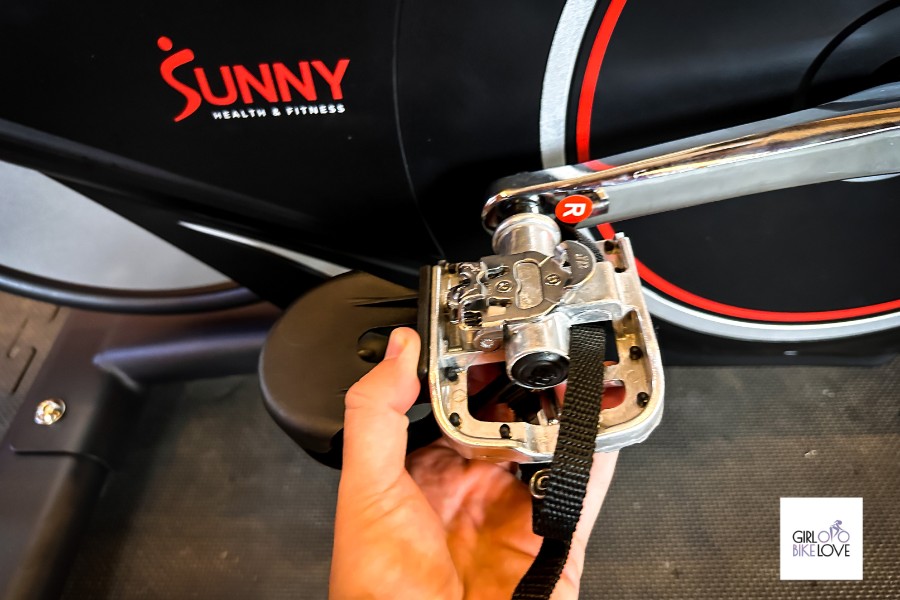
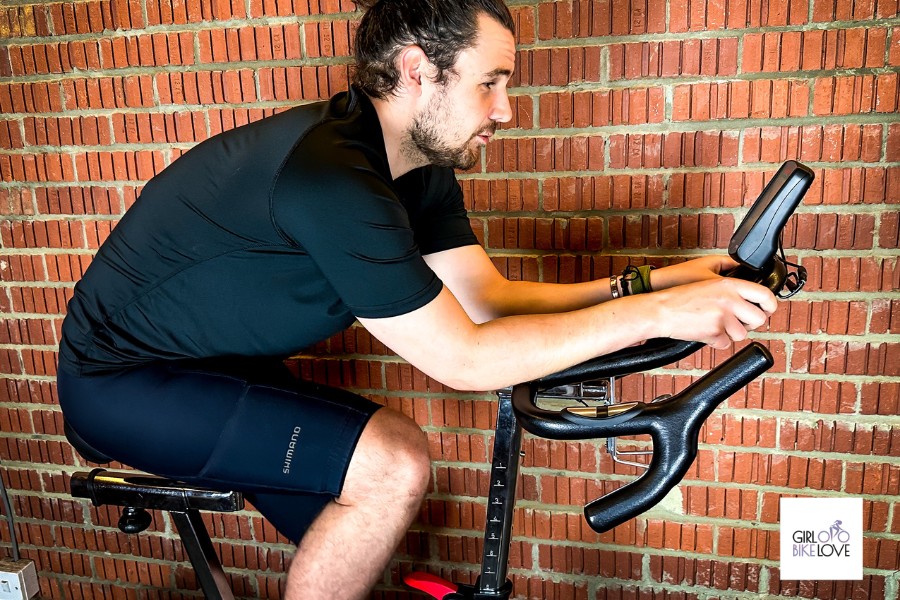
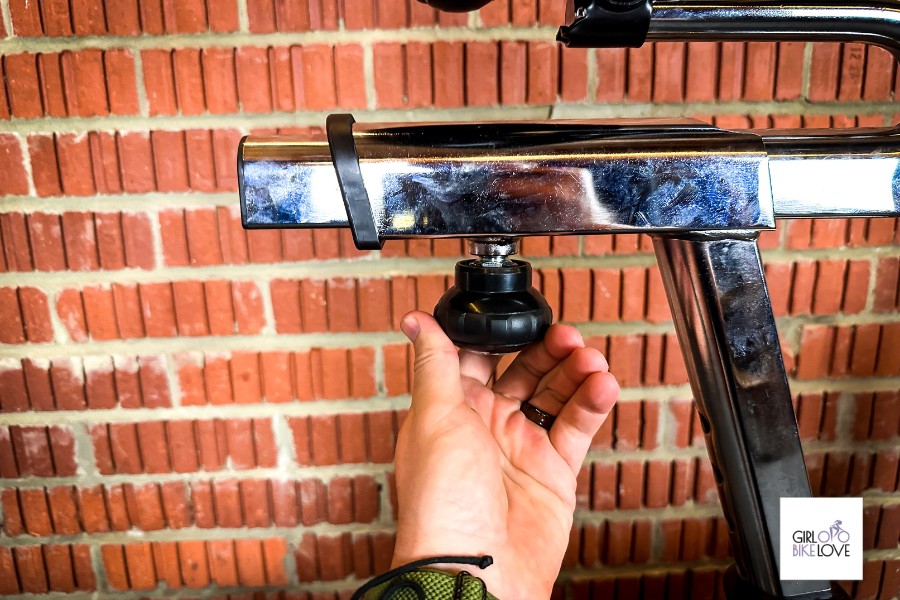
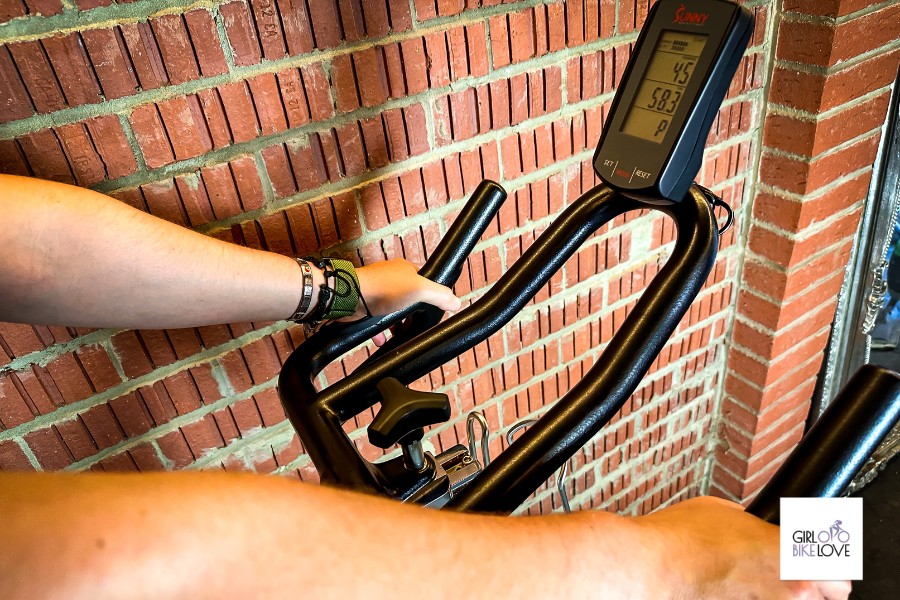
Popular in the UK Market
A premium interactive exercise bike engineered for immersive cardio and strength training. The ultra-quiet magnetic resistance system creates a natural riding feel while streamed classes and on‑board connectivity deliver engaging workouts; crafted with high‑quality materials and sleek design ideal for both professional and home gyms
How Magnetic Resistance Works
For magnetic resistance to occur, a few things need to happen, and as you can guess, this process includes magnets. A standard design contains two powerful magnets located parallel to one another with the flywheel between them.
The metal flywheel, which works as a conductor in this instance, spins through the two magnets’ magnetic fields and the force surrounding them. This magnetic field causes a drag on the metal flywheel, which creates an eddy current. An eddy current gets its name from the swirling motion of an eddy in a stream. The energy current flows in a closed-loop circuit that runs perpendicular to the magnetic field. When the resistance knob turns to either increase or decrease resistance, the magnets move closer or farther away from the flywheel. The closer the magnets get to the flywheel, the greater the magnetic field, therefore higher resistance is felt on the bike.
Benefits of Magnetic Resistance vs. Friction Resistance Cycles
Indoor cycles include either a magnetic resistance or friction resistance system. A magnetic resistance system uses magnets to change the resistance. The magnets, which straddle the bike’s metal flywheel, either move closer or farther away from the flywheel to alter rider exertion and resistance level. A friction resistance cycle includes fabric pads or leather straps that apply pressure to the spinning flywheel to adjust resistance. Below is a quick comparison of the benefits magnetic resistance models offer in contrast with friction models.

Magnetic Resistance Exercise Bike Common Problems & Issues
Squeaking Noise
If your indoor cycling bike is making a squeaking noise while riding, you will need to try to pinpoint where the sound is coming from before you can fix it. Squeaking noises can come from many different problems, including issues with the belt drive or even preventable rust build-up. However, it is very common that a squeaking noise can be fixed by cleaning the bike component that has the issue before adding lubrication. Often the pedals or crank arms need a little lubrication. I recommend using a silicone lubricant, compared to more abrasive options such as WD-40.
Magnet Issues
Two issues that can occur with magnetic resistance bikes are that the magnets need to be replaced or repositioned. This is because magnets play a pivotal role in magnetic resistance. They are responsible for increasing or decreasing the workload based on moving closer or farther away from the metal flywheel.
To assess the magnets, you will need to access the flywheel.
- Step 1: Remove the pedals
- Step 2: Remove the flywheel shield
- Step 3: Begin your assessment of the magnets
A simple way to determine if a magnet needs to be replaced is to test it. Place one of your metal tools close to the magnet. What do you feel? If you can feel the magnetic field, you know that the magnet is functioning fine. However, the magnet probably needs to be replaced if you do not feel anything.
Magnets can also move from their original positioning, which affects their ability to adjust the resistance appropriately. You can tighten them back into position along with any other nuts and bolts while you have the flywheel shield off.
Belt Slipping
Over time the belt will need replacing as it will eventually stretch out and begin to slip. Replacing a belt can be tricky, so it is essential always to reference your bike’s manual and follow the proper steps as each cycle is a little different. However, if you attempt to change the belt on your own, here are a few general tips.
You will need to remove the pedal crank before accessing the belt guard to access the belt. After the belt guard has been removed, the belt tension bolt will need to be removed so that the strap can be detached. The flywheel will also need to be removed to slip the belt off of the bike. After removing the old belt, replace it with the new belt and follow the steps in reverse.
However, if you decide that you would like help from the experts, you can always call a technician to help make the change.
Clicking Noise
A clicking noise or feeling often is caused by loose screws or bolts located on the pedals or crank arms. The noise or clicking feeling should go away after everything is tightened.
Magnetic vs. Air Resistance for Indoor Cycles
As discussed above, unlike magnetic resistance bikes, air resistance cycles include using a fan to create resistance. As the rider increases the speed, the resistance level also increases. The fan blades encounter more air pressure at higher speeds as they attempt to turn faster.
| Magnetic | Air Resistance | |
|---|---|---|
| Quietest | ✓ | |
| Requires Less Maintenance | ✓ | |
| Lower Initial Cost | ✓ | |
| Offers Pre-Set Resistance Levels | ✓ |

